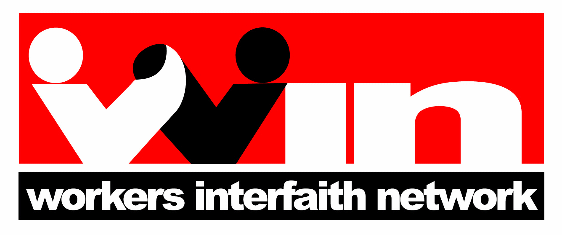There are many different ways that your congregation can participate:
- Including prayers for victims of wage theft, and prayers for employers who are taking advantage of their workers, in your worship service.
- Using our wage theft sabbath resource packet to develop a missions moment or sermon about wage theft.
- Using a bulletin insert in the resource packet to educate your members about wage theft.
- Inviting your members to fill out a pledge card to stop wage theft (found on the bulletin insert), and returning these pledge cards to WIN.
- If you have low-wage workers in your congregation, holding a wage theft workshop before or after your regular service. WIN can provide a workshop leader to discuss what counts as wage theft and what workers can do if they're a victim. Just email me to request a workshop leader.
- Taking up a collection to support WIN's work against wage theft.
Our wage theft sabbath resource packet is designed to make participating as easy as possible for your clergyperson or anyone else who helps plan worship. What's included?
- A reflection on the Christian lectionary text for Sunday November 20th
- A Jewish perspective on wage theft
- A bulletin insert that includes a pledge card with many different actions people can take to stop wage theft
- A responsive prayer
- Suggested scriptures related to wage theft
- Stories of two Memphis workers who have experienced wage theft
- A more detailed description of what wage theft is, and answers to frequently asked questions about wage theft.
- A commitment form you can return to let WIN know how your congregation plans to participate in the wage theft Sabbath.
The wage theft Sabbath is part of a national week of action against wage theft that dozens of cities will be participating in. If you're located outside of Memphis and want to find out about activities in your area, contact Interfaith Worker Justice.
Want to take action with workers seeking justice? Sign up for email action alerts from Workers Interfaith Network at http://www.workersinterfaithnetwork.org/












